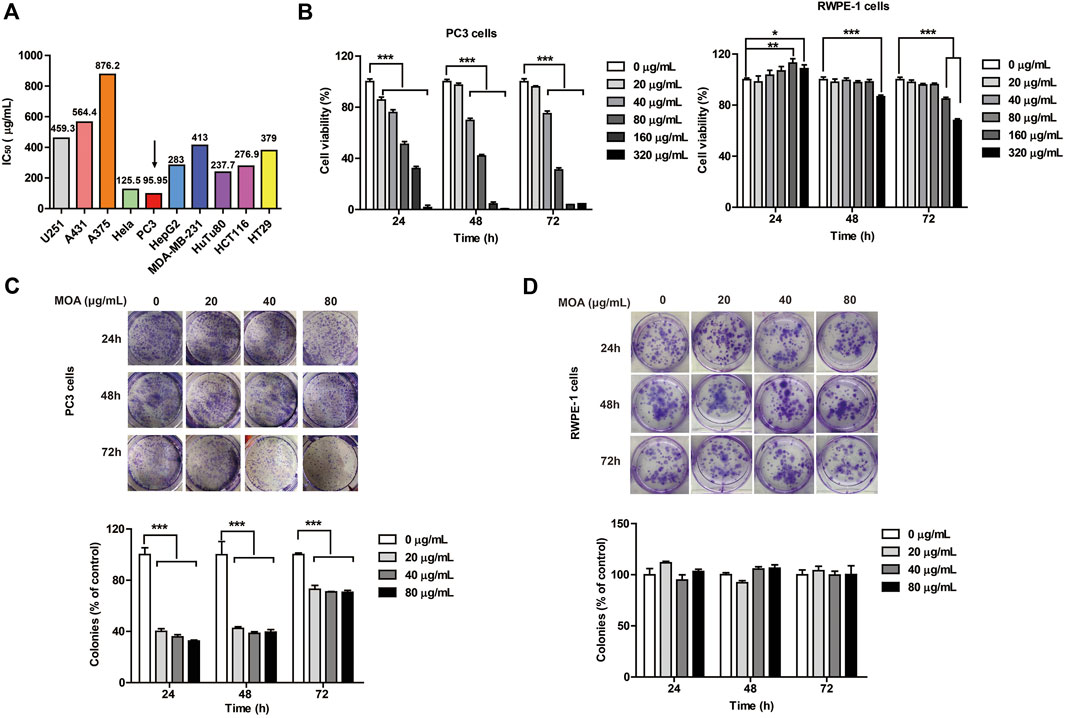
95% of researchers rate our articles as excellent or good
Learn more about the work of our research integrity team to safeguard the quality of each article we publish.
Find out more
CORRECTION article
Front. Pharmacol. , 16 September 2021
Sec. Ethnopharmacology
Volume 12 - 2021 | https://doi.org/10.3389/fphar.2021.760933
This article is part of the Research Topic Anticancer Activities and Mechanisms of Traditional Herbal Medicines View all 9 articles
This article is a correction to:
Moringa oleifera Alkaloids Inhibited PC3 Cells Growth and Migration Through the COX-2 Mediated Wnt/β-Catenin Signaling Pathway
 Jing Xie1,2†
Jing Xie1,2† Feng-xian Luo1,3†
Feng-xian Luo1,3† Chong-ying Shi1,2†
Chong-ying Shi1,2† Wei-wei Jiang4
Wei-wei Jiang4 Ying-yan Qian1,5
Ying-yan Qian1,5 Ming-rong Yang1,5
Ming-rong Yang1,5 Shuang Song1,2
Shuang Song1,2 Tian-yi Dai2
Tian-yi Dai2 Lei Peng3
Lei Peng3 Xiao-yu Gao3
Xiao-yu Gao3 Liang Tao1,3
Liang Tao1,3 Yang Tian1,2,3*
Yang Tian1,2,3* Jun Sheng6*
Jun Sheng6*A Corrigendum on
Moringa oleifera Alkaloids Inhibited PC3 Cells Growth and Migration Through the COX-2 Mediated Wnt/β-Catenin Signaling Pathway
by Xie, J., Luo, F-x., Shi, C-y., Jiang, W-w., Qian, Y-y., Yang, M-r., Song, S., Dai, T-y., Peng, L., Gao, X-y., Tao, L., Tian, Y., and Sheng, J. (2020). Front. Pharmacol. 11:523962. doi: 10.3389/fphar.2020.523962
In the original article, there was a mistake in Figure 1C as published. Some images in Figure 1C were mistakenly duplicated. The corrected Figure 1 appears below.

FIGURE 1. The effect of MOA on the proliferation of PC3 and RWPE-1 cells. (A) The half maximal inhibitory concentration (IC50) of ten tumor cell lines following treatment with MOA (0–320 μg/ml) for 48 h. (B) Cell viability of PC3 and RWPE-1 cells following MOA (0–320 μg/ml) treatment for 24, 48, and 72 h. (C,D) Analysis of the colony formation ability of PC3 cells following treatment with MOA (0, 20, 40, and 80 μg/ml) for 24, 48, and 72 h. The cellular colony formation rates are expressed as fold changes. Results are expressed as the mean ± SEM of three independent experiments. ***p < 0.001 vs. 0 μg/ml.
The authors apologize for this error and state that this does not change the scientific conclusions of the article in any way. The original article has been updated.
All claims expressed in this article are solely those of the authors and do not necessarily represent those of their affiliated organizations, or those of the publisher, the editors and the reviewers. Any product that may be evaluated in this article, or claim that may be made by its manufacturer, is not guaranteed or endorsed by the publisher.
Keywords: Moringa oleifera alkaloids, prostate cancer, PC3 cells, cell growth and migration, COX-2-wnt/β-catenin signaling pathway
Citation: Xie J, Luo F-x, Shi C-y, Jiang W-w, Qian Y-y, Yang M-r, Song S, Dai T-y, Peng L, Gao X-y, Tao L, Tian Y and Sheng J (2021) Corrigendum: Moringa oleifera Alkaloids Inhibited PC3 Cells Growth and Migration Through the COX-2 Mediated Wnt/β-Catenin Signaling Pathway. Front. Pharmacol. 12:760933. doi: 10.3389/fphar.2021.760933
Received: 19 August 2021; Accepted: 03 September 2021;
Published: 16 September 2021.
Edited and reviewed by:
Rajasekaran Subbiah, ICMR-National Institute for Research in Environmental Health, IndiaCopyright © 2021 Xie, Luo, Shi, Jiang, Qian, Yang, Song, Dai, Peng, Gao, Tao, Tian and Sheng. This is an open-access article distributed under the terms of the Creative Commons Attribution License (CC BY). The use, distribution or reproduction in other forums is permitted, provided the original author(s) and the copyright owner(s) are credited and that the original publication in this journal is cited, in accordance with accepted academic practice. No use, distribution or reproduction is permitted which does not comply with these terms.
*Correspondence: Jun Sheng, c2hlbmdqdW5feW5hdUAxNjMuY29t; Yang Tian, dGlhbnlhbmcxMjA4QDE2My5jb20=
†These authors have contributed equally to this work
Disclaimer: All claims expressed in this article are solely those of the authors and do not necessarily represent those of their affiliated organizations, or those of the publisher, the editors and the reviewers. Any product that may be evaluated in this article or claim that may be made by its manufacturer is not guaranteed or endorsed by the publisher.
Research integrity at Frontiers

Learn more about the work of our research integrity team to safeguard the quality of each article we publish.